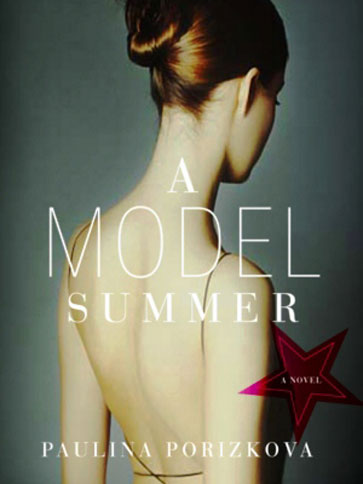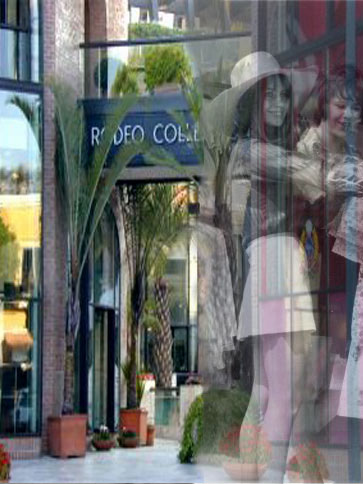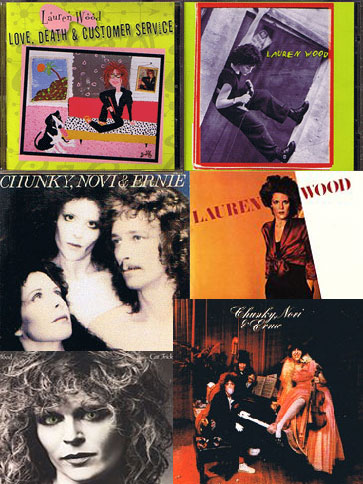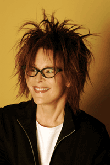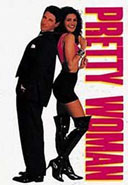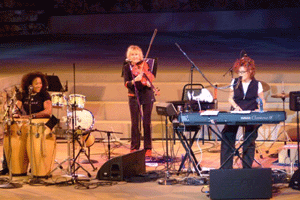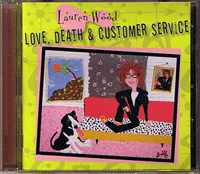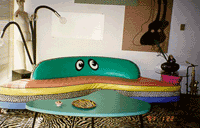Author: admin
Recommended Must-Reads
A Model Summer – Paulina Porizkova
Make it a Happy Holiday Season: It’s OK to Shop For Yourself As Well!
|
Talking Chic
Make it a Happy Holiday Season: It’s OK to Shop For Yourself As Well
And just like many people, I also envision a busy mall full of germs, greedy folks trying to get the last of everything, and waiting in line for impossible parking. That is what I despise about the holiday season. So, I figure, if I am going to put myself through this hellish routine, I’m also gonna treat myself to something new and fabulous in the process. (Don’t get me wrong though – I totally believe in giving to others without expecting anything in return and giving to charitable causes.) So, instead of making huge lists of what I would like for Chanukah, Christmas (yes, I am one of those people who celebrate and appreciate both holidays), or my birthday, which falls on the day after Thanksgiving this year, I like to ask for small gifts so that I am not putting anyone out. Plus, it is important that I pick out my must-haves of the season…myself! This has nothing to do with not trusting that my mom, boyfriend, or sister will pick out the right gift for me; it’s more about me wanting to enjoy the process of finding the perfect this or that. Because amongst what I despise about holiday season shopping, I thoroughly enjoy the sales galore. If things are gone when I finally make it to a certain aisle or department, then guess what? I will walk away, and figure it wasn’t meant to be! So as I mentally try to prepare for my last-minute holiday shopping, I have a few items in mind that, if I’m lucky, will score for a cheap cost with great quality:
So those are my big-ticketed items I hope to find on sale this holiday season. Now, if I skipped out on everyone’s gift and just shopped for myself, I would consider myself heartless and quite selfish. Yet, in allowing myself to update my wardrobe in the process, I feel happy. Doing just that, I will also feel prepared in entering the New Year with fresh fashion pieces, and having family and friends who understand my logic around this time…and still love me for being me. By Elana Pruitt (http://www.myspace/talkingchic) |
One Day at a Time
One Day at a Time
You can’t grasp time
And times you can,
are never time itself
Why configure time you cannot grasp?
-Verses from the Center, Stephen Batchelor
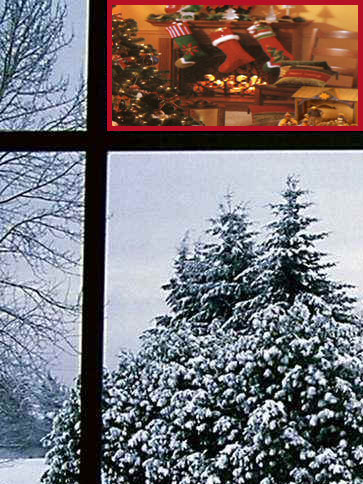 Christmas is the season where we’re under the gun to get things done quickly, and as the Target commercial so eloquently and beautifully sings, “Counting down, counting down.” In other words, hurry up! Buy those presents, shop, shop, shop. Don’t miss that deadline of Christmas Day.
Christmas is the season where we’re under the gun to get things done quickly, and as the Target commercial so eloquently and beautifully sings, “Counting down, counting down.” In other words, hurry up! Buy those presents, shop, shop, shop. Don’t miss that deadline of Christmas Day.
Christmas comes and goes year after year, and to me, there have been many a day suspended in time. Like Christmas Day the year I was six. I received my Easy Bake Oven and roller skates. Everyone on our street received a pair of white Roller Derby Roller Skates, and we skated all Christmas Day almost until the sun went down. None of us lost a wheel, and that Christmas is forever emblazoned in my mind. Slow down, and take it all in. One moment is here, and then in the blink of an eye it is gone.
I am a busy person these days. I work a full time job, sing in a band and with an opera group, and I also tutor students in math. I believe every moment has its place in eternity, however, and I try to relax, no matter what I am doing, and remain where I am. I try not to worry about the next day or even the next hour. I realize that as the years have gone by, there are so many things I really want to remember; and because I rushed through events in the past, I have to strain to remember a smile, a hello, or even a thank you from a favorite friend or relative.
I remember the year the fire trucks came to our neighborhood. I was probably five years old. Those trucks released the water from all the hydrants in the area. All the neighborhood children had a blast. We made paper boats and floated them down the stream that filled the street. We squealed with joy as we ran through the jets of water, and felt disappointment as the last bit of water dried up.
I remember the donut vendor that used to come by selling hot glazed donuts. Those were the best donuts I ever had and the reason I am not obese today. None today can compare to the hot gooey pleasure I derived from those donuts. These simple childhood memories are forever etched in time and seem just as alive today as they were then. When you can grasp time, it isn’t really time. It’s an eternal moment.
As people, we are always planning ahead. This has been conditioned in us since the dawn of our existence because we realized that if we did not plan for tomorrow, we would surely die in a storm, as the result of a drought, or as the result of extreme heat or extreme cold. Maybe even be eaten alive by wild animals. We have a sort of fear reflex that if we do not worry about the next day, hour, or moment, it will be to our peril.
In present times, it’s easy to worry. Many people live from paycheck to paycheck, and if they suffer a loss of income or property, they might become homeless. So there are valid reasons to worry about the unknown. However, there is an argument for living in the moment and taking each day as it comes. If this is the moment that matters, then what happens to us if we miss it?
There’ve been a few times in my life where I found myself one step away from being homeless, but what I learned was that I always found myself in better circumstances later, whether I worried or not. I spent many years living from day to day; and through this I discovered the idea of being present. I began to appreciate the little joys in life, while remaining focused on going no farther ahead than today in my mind. I still made plans, and I still put money away when I could; but in my mind I worked very hard to stay focused in the now. My reasons were few. I simply wanted to feel joy now, not ten years from now.
I stopped saying I will be happy when I get that car, when I buy that house, when I earn that degree. I started recognizing that my little girl’s smile or the sun shining in the window was all I needed to be happy. And that happiness was worth an eternity to me.
How can life flow without flowing before, flowing now, or flowing later? (Stephen Batchelor)
Therefore, the moment now is the most current, the most present, the most significant. During these stressful times try being mindful of where you are now. You will find this season becomes a permanent etching to be viewed and re-viewed from time to come.
Written by Lisa Trimarchi
Elina Katsioula-Beall of DeWitt Designer Kitchens – Making the World Better One Kitchen at a Time
Elina Katsioula-Beall of DeWitt Designer Kitchens – Making the World Better One Kitchen at a Time
 Elina Katsioula-Beall is the head of DeWitt Designer Kitchens in Studio City. Elina is a native of Athens, Greece, and has lived in Los Angeles for over twenty years. She is a multi-talented design professional with over 20 years of experience in design. Awarded a Master’s Degree from Yale in Set Design, she launched a career in TV, film, theater and live shows, receiving numerous theatrical awards and
Elina Katsioula-Beall is the head of DeWitt Designer Kitchens in Studio City. Elina is a native of Athens, Greece, and has lived in Los Angeles for over twenty years. She is a multi-talented design professional with over 20 years of experience in design. Awarded a Master’s Degree from Yale in Set Design, she launched a career in TV, film, theater and live shows, receiving numerous theatrical awards and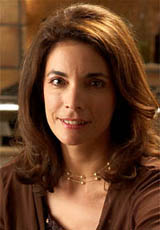 three Emmy nominations. She was the Art Director for the Academy Awards three times, and she has worked with countless celebrities. Katsioula-Beall won awards as a kitchen and bathroom professional. She recently won awards for two of her designs at the National Kitchen & Bath Association Design Contest, and an additional two as a co-designer with DeWitt.
three Emmy nominations. She was the Art Director for the Academy Awards three times, and she has worked with countless celebrities. Katsioula-Beall won awards as a kitchen and bathroom professional. She recently won awards for two of her designs at the National Kitchen & Bath Association Design Contest, and an additional two as a co-designer with DeWitt.
Elina Katsioula-Beall is a certified kitchen designer and brings her classical Greek heritage and her set design experience to kitchen design. Elina received a Bachelor’s Degree in Art and Painting from the Athens Polytechnic Institute. And in the same way she designs spaces for characters of theatrical plays and films.
What made you decide that you wanted to get into design?
I have been in art all my life. I was drawing since I was two years old. I picked up a pencil and never let it go down again. At that point, being a native of Greece, I was very inspired by the antiquities there. I had a parallel career as an art director in television and film and also did some stage shows and several variety shows. I was the art director for the Oscars on three different occasions, also Kennedy Center Honors, American Music Awards, and theme designs stemming from Saudi Arabian Royal weddings to stage shows for Richard Wirick.
How long have you been actually designing kitchens?
I have been working by my husband DeWitt’s side for the past 19 years, along with my art direction career, but I have been designing kitchens exclusively only for the past 5 years in this showroom.
I saw some of your kitchens on covers of some major design magazines. They are beautiful, diverse…and they look extremely functional. Can you tell me what sets you apart from other kitchen designers?
We are trying to address the client’s personality. We go beyond custom. You’re not only designing for their style (entertainment style, cooking style, and shopping style), but beyond that you’re also designing their space. Our space is something that projects our mental  space. And we have to get into our client’s personality in order to understand exactly what they want, who they are, and design for who they are in the same way I have designed for characters in a film, for television or theater. So when you see a set, you know exactly that this set can be only part of the life of that character in the same way the kitchen that I design should reflect my client’s individuality.
space. And we have to get into our client’s personality in order to understand exactly what they want, who they are, and design for who they are in the same way I have designed for characters in a film, for television or theater. So when you see a set, you know exactly that this set can be only part of the life of that character in the same way the kitchen that I design should reflect my client’s individuality.
Along those same lines, if that kitchen reflects who they are, as well as being designed to endure time, it becomes a classic. A trend is something that is great today, but then it is gone tomorrow. The great challenge for designers today is to design something classic which means [creating something that is] enduringly beautiful. Twenty years from now it still speaks of its time, but doesn’t look outdated.
Let me give you a scenario. My husband likes to cook, but we’re both really busy people. I don’t have time to cook; I live on the microwave. The only time we really use our kitchen is when we are entertaining, and I have very discerning taste. What would you say to me to make me want to hire you as my kitchen designer?
The very first thing that I would like you to do is pull some pages out of magazines that have something that speaks to you. It can be images, kitchens…something very inspirational. And that’s an image that we both start with. Then, I will ask you everything about your lifestyle, both you and your husband, either jointly or separately, like what is your height; are you left or right-handed; your habits around the kitchen; shopping style;entertainment style; cooking style; how many members in your family; what would you prefer to have; and what are your storage needs? You will start to see how many aspects there are in the kitchen, and how many things you have to look at once I design. I have to make the space absolutely functional for you. Form should follow function. It’s the soul of an axiom. We have to break down your needs and address all of your wishes. At the end of my survey, we have your wish list.
If you tell me you have to see the stars in your kitchen, then I need to know that. I once had a request to have copperware in the kitchen so when the sun sets, it will reflect on the copperware. It can be anything you want. It can address all your emotional or practical needs. But that’s how I would design a kitchen for you.
That’s a whole other way of thinking. It’s very different from an IKEA or Home Depot kitchen, because with them there’s a template.
We don’t do quickie-cutter kitchens. There is something to be said about mass-production that addresses all needs; but as an artist, I would like to go beyond that and transcend the ordinary. I really want to tap into the extraordinary, and the only way I can do that is to connect with my client on a very intimate level in your mind and in your head so I know exactly what your wish is. And this is going to translate through my filter and become creatively your space. So when your friends and family come and see your kitchen for the first time, they will say, “You can only be in this kitchen. I cannot imagine you anywhere else!” And that is my biggest reward.
I don’t realize what goes into certain things, and this is very insightful. Obviously, having worked in film and television, doing custom, themed designs, and just the extent of your artistic ability…that’s obviously what makes you who you are as a designer today.
Absolutely! You have to take all those design forms and filter them through your creativity, and find the object that really makes you feel that you serve the community, mankind, or fellow human beings. I used to chuckle that I would love to make the world better one kitchen at a time.
Have you ever had a client that you just could not satisfy?
Yes. There are those clients. It starts with the individual. I believe an unhappy person will never be a happy client. I had a client once who asked, “Will my friends turn green with envy?” She was doing the kitchen for her friends, not herself. There are people you cannot satisfy no matter what, but the client is always right? At some point I’ll find the one place where they will be happy?
Have there been any obstacles in doing kitchen design?
I think for a true creator there should be no obstacles.
Highest High
When we photographed the last bunch of kitchens, I saw them come to light with very good photography. And I saw the beauty in the detail. They were on magazine covers. Eventually we won awards. We won 5 national awards in 2007 for excellence in kitchen and bath design. It was good to have the work rewarded, and it was great to work with individuals who said we gave them a kitchen they didn’t even know they wanted. And that felt good.
bath design. It was good to have the work rewarded, and it was great to work with individuals who said we gave them a kitchen they didn’t even know they wanted. And that felt good.
Lowest Low
When the client doesn’t understand the type of work we do. They put us at the same level as the local custom cabinetmakers because they do not know what goes into designing a kitchen well. They think it’s a bunch of cabinetry and appliances, you throw in a stove top, and it’s done. It’s not. It’s an organic functional place.
Recently I introduced Gestalt design. It’s a little bit like a melody, where it transcends the combination of materials. It’s not just cabinetry, countertops, and appliances. It’s an entire wholesome, organic thing. The sum total becomes its own entity. It aims to become the expression of the client’s mental space, because the space of the kitchen that I will create will shape in turn the client. This is my design philosophy.
To learn more about DeWitt Designer Kitchens, visit their website atwww.dewittdesignerkitchens.com.
Interviewed by Kaylene Peoples
The Ebb and Flow of Lauren Wood – A Multifaceted and Multi-talented Creator of Beautiful Music
The Ebb and Flow of Lauren Wood – A Multifaceted and Multi-talented Creator of Beautiful Music
“What will strike you most about Wood’s music is her sultry, sexy voice, but if you get past that, you will find subtly crafted tunes of immense sophistication and insight.” – John Schoenberg, The Album Network – I visited Lauren in her home in Laurel Canyon. It mirrored the talented, somewhat quirky, off-beat artist. Her house was colorful and took me back to the fifties and sixties as soon as I entered. There was a vintage mannequin in one corner of the living room, vinyl album jackets neatly placed in a rack against a wall, musical “I have a little kid’s attitude. I am very playful andI live in a house that looks like Peewee’s playhouse. I’ve never had a real job. I guess you could say I am the true Indie artist.”
How did you get involved in music? I noticed that as much as I loved art, I never enjoyed actually doing the art. I feel like my house is all art, but I’m happiest when the art is all done and I can live in the art. What’s your background? When I was a little kid, music affected me on the deepest level. I was mesmerized by George Gershwin. My parents used to play show tunes all the time, and I was in love with Richard Rogers and his work with Rogers and Hammerstein. Did you always know you could sing? I have found a style and it’s something that has evolved for years. I’ve had to work really hard [at singing]. There are some people who can wake up in the morning and sing really great, but I have to work at it. Tell me about some of your successes. I have been making records since 1968. I was in a band called Rebecca and the Sunnybrook Farmers, and then the band dwindled down into the three of us and we How long have you been independent? My first Indie record was called Lauren Wood 1999. It has “Fallen” on it too, as well as the Pretty Woman mix, and now my newest record is called Love, Death and Customer Service. What is your process for writing a song?
So it’s a natural process for you. Yes, and I can’t force it. Have you had any obstacles in your career? Back when I first started, before I hit the “ageism” thing in pop music, I was hitting the “woman” thing. I used to have problems with people if they did not let me be free. Back then it wasn’t a given like it is today that women could be a producer. That used to be a problem. The producers that let me have more input, I’d do good work. I’m known mostly for my ballads, and my music has to ebb and flow. You mentioned that it took a year to master your new recordLove, Death and Customer Service ? I worked on it for 5 years. We’d mix for a week, go back and remix. I finally created this lovely album. When you master, in order to make it louder, it goes through this compressor and it pulled the air and vibrato out of my vocal and it took out the soft lilt Highest High Other than when I get emails from people who write “Fallen” has gotten them through an illness, I had 2 experiences while touring in Malaysia. I had caught a cold and was very sick in Malaysia. I started to lose my voice and I was performing at one of the clubs there. Well, I walked into the building with my band, and the people at the club threw a spotlight on me. And everybody asked me to sing “Fallen.” The band started to play, and people were all standing on the tables and mouthing the words to “Fallen.” This was on the other side of the earth, and this little song that just came through me had affected all these people. The other thing that was so fun in Malaysia was that we put in my contract that I could kiss a baby elephant. So they closed the zoo and let me have a private tour. I got to hold a baby orangutan, and I got to kiss a baby elephant. My music brought me to these animals around the world. I was taught at an early age by my father to love and respect animals, so it was deeply ingrained in me by the time I went to Malaysia. It meant a lot. Lowest Low I’m trying to get my record on radio. Back when I started doing music, you could hear Tony Bennett, Elvis Presley, The Beatles, Frank Sinatra, The Doors, Joni Mitchell…on the same radio station. But these days, corporations have taken over the airwaves. The stations are so overly analyzed and formatted that it’s killing What about Internet radio? This record is on radio, but it’s not easy. What’s been your process trying to get it on? I make calls myself. When I was on Warner Brothers, they asked me to call the radio programmers and thank them for playing my records, and I did. So I [already] What advice would you give an Indie artist who is trying to make it in this business? Be yourself. Be an artist. Be the best you can be. Work really hard. Don’t have an attitude. Be humble. Life is tough enough to have to deal with people who are not nice. To learn more about Lauren Wood, visit her website atwww.laurenwood.com. Interviewed by Kaylene Peoples |
Odalys Nanin of MACHA Theatre Company – Building Social, Cultural, and Artistic Bridges
Odalys Nanin of MACHA Theatre Company – Building Social, Cultural, and Artistic Bridges
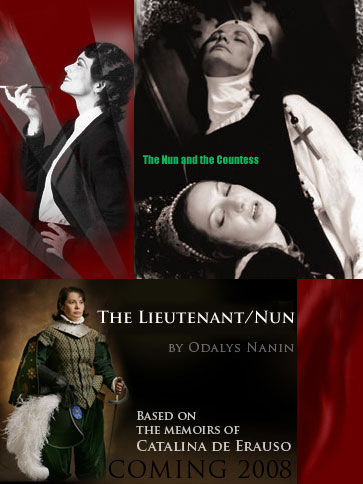 Odalys Nanin is the founder and producing artistic director of MACHA Theatre and Films. She has appeared in soap operas, series, T.V. commercials, and at least 30 theatre productions in New York and Los Angeles. Nanin has a stellar reputation for writing, directing, and producing theatre in Los Angeles. She has also received three Drama-Logue Theatre Awards for direction, performance, and production of Vargas Llosa’s “La Chunga.” “Skin of Honey” is the fifth play she has written, and she produced it in 2007. Her other plays are “Love-Struck” (1997), “Garbo’s Cuban Lover” (2001), “The Nun and the Countess” (2003), and “Beyond Love” (2005).
Odalys Nanin is the founder and producing artistic director of MACHA Theatre and Films. She has appeared in soap operas, series, T.V. commercials, and at least 30 theatre productions in New York and Los Angeles. Nanin has a stellar reputation for writing, directing, and producing theatre in Los Angeles. She has also received three Drama-Logue Theatre Awards for direction, performance, and production of Vargas Llosa’s “La Chunga.” “Skin of Honey” is the fifth play she has written, and she produced it in 2007. Her other plays are “Love-Struck” (1997), “Garbo’s Cuban Lover” (2001), “The Nun and the Countess” (2003), and “Beyond Love” (2005).
Tell me about MACHA Theatre Company and how you acquired it.
MACHA Theatre is a landmark which used to be a dealership for Mercedes Benz. It was renovated for theater, and for 32-35 years Shakespeare plays were produced there. Inside the theatre is a mini version of the Globe Playhouse in London. The owner recently passed away, and destiny called me somehow. I had just done a play here two years ago that had been very successful. And twenty years ago I did a play for the owner. I played Jessica in The Merchant of Venice. I [discovered] that he [the owner] had passed away, and it was up for rent, and I went for it.
You are also an actress?
Yes, I’m a writer; I direct, produce, and I perform. [Last] September we did “Skin of Honey”. I did my first political play. [It was] a love story set in 1961 [about] two lovers torn apart during the invasion in Cuba. This was my sixth play. I wrote it and co-directed it with Alejandra Flores . I love to write Romantic comedies, but that was the first time that I tackled a [political issue]. I threw the love story in it.
I created a gallery wall, a screening room called Garbo’s Screening room for anyone who wants to come in and do a documentary or a short.
Do you rent the theatre outside of your own productions?
When I am not producing my plays, I rent it to other productions coming in. I pick all the work. I want it to be very good and cutting edge and have a message.
How long do the plays run?
A play runs 6-8 weeks, Thursdays through Sundays.
So you’ve written six plays?
I wrote six plays. They will be produced by Bi-lingual Press in Arizona next year as a textbook. I have been producing theatre since 1992. I did a few plays in North Hollywood, including “Garbo’s Cuban Lover,” which also won an award, and it was rated as one of the best 10 plays by the Advocate Magazine. I eventually adapted it to the screen. Eventually it will become a movie.
What goes into producing a play?
First you have to have an idea. I have to be driven by that idea. It comes to me and I can’t stop thinking about it, so I have to write about it. It usually takes me about two weeks to a month to write about it. Then, you do a stage reading of it, rewrite and set it for production for the following year, cast it, and rehearse it.
As a producer are you required to know everybody’s job, too?
Yes, I have to know about the lights and sound, and I create and pick the songs that go into the play. I cast the play…about sixty percent of it is casting it correctly. What’s interesting about the plays is I started “Skin of Honey in 1996”. Last year we were talking about teenagers and Cuba, and I remembered the scene I had written in 1991. The play almost tells you when it should be written. So never throw out anything that you write.
Do you feel that having been an actress has also helped you as a producer?
Oh, absolutely! The reason I became a writer/director/producer is because I was an actress. You know as an actress you go out on auditions and sometimes you audition for parts that you’re not very attracted to. It got to a point that I really wanted to implement my talent into the right roles…and so by writing them, you actually create the roles you want to play. And that’s what I did. You have to put your craft into something that you really love.
Highest High
I have to mention that I also do short films. My first one was based on a story that my father told me a long time ago. He made me a promise before coming out to the United States. He said that I was going to have my own little car to drive on the streets. I had forgotten about that. Twenty years go by, and I write a short film about it. It’s my first short film. I had no budget, but I got 25 people to volunteer for a three-day shoot: Friday, Saturday, and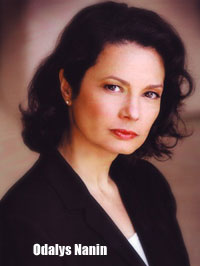 Sunday. The first shoot was at a park, and we had to be there at 7:30 in the morning…and I was driving up the road hoping they were there. They were all there–just volunteers who were there because they liked the story. The day I finished the story, it was in the can. I had those reels…and I was driving in my car…and all of a sudden I started to hysterically cry and hysterically laugh. It was the highest height that I could’ve reached–that I had accomplished that.
Sunday. The first shoot was at a park, and we had to be there at 7:30 in the morning…and I was driving up the road hoping they were there. They were all there–just volunteers who were there because they liked the story. The day I finished the story, it was in the can. I had those reels…and I was driving in my car…and all of a sudden I started to hysterically cry and hysterically laugh. It was the highest height that I could’ve reached–that I had accomplished that.
What was the film called?
It was called “Only One Suitcase”. Just the thrill of these people showing up and working really hard to make it all happen was great.
Lowest Low
Not having enough money is a low. I like my productions to have high production qualities. With the play “Beyond Love”, I didn’t have enough money for the set. It was bare bones. It looked fine, but I knew I wasn’t doing it the way that I wanted. I know it’s not a big deal for people coming to the theater, but when you put so much into it and you know it could be better, but you don’t have the means…that’s a real low.
Is there anything you’d like to add to create more theatre patrons?
Create more women writers. I am trying to put together a workshop for teenagers that can not only write as an ensemble, but perform the piece and showcase it, exposing the young up-and-coming actresses to the theater. I think exposing as many youngsters to this world would make a big difference in their grown-up years.
What does MACHA stand for?
MACHA means moheres (women) advancing culture, history, and art. We were formed in 2000 because we did not have a place or a way to express ourselves and have a voice. It is a group of women who are committed to bringing about plays about women that people don’t really know about.
To learn more about MACHA Theatre Company, visit the website atwww.machatheatre.org.
Interviewed by Kaylene Peoples
Gina Villalobos – Country Rock Has a New Queen
Gina Villalobos – Country Rock Has a New Queen
Gina Villalobos has performed on countless stages throughout the world. Her songs appear simple, but don’t let that fool you. There are far-reaching meanings hidden behind her lyrics. Her voice borders on tough, yet tender, at times. And after a few listens, you can’t help but read between the lines. As a live performer, she is a treat—there is a polished difference between her actual recordings, but that is all. I appreciate a good raw live performance, and I appreciate a well engineered recording. Gina delivers both with her arsenal of CDs: Miles Away, Rock ‘n’ Roll Pony, Beg From Me, etc..
Gina garners a growing cult following in both the UK and the US for her grass-roots rock-influenced songs. And her privileged audiences enjoy a transcending experience when given the gift of seeing her perform live. As quoted from Harp Magazine, “Villalobos has the restlessness of the most moving country music, but she combines it with a rock spirit that’s always forthright and never forced….” — Jason Gross. And from Americana UK, “This is country rock at its most melodic, subtle and heart broken…a perfect summer driving record.” — David Cowling.
Gina Villalobos is a breath of fresh air when it comes to entertaining an audience and still remaining true to her music. I felt the intensity and passion this singer/songwriter/guitar player meticulously places in her music. I was not forced to feel when I listened to her perform. Instead, I became empathic. Her lyrics took me on a journey of truth throughout her very soul. Her lyrics are bold, seductive, sad, happy, and sarcastic at times. My neighbor, who is a huge fan of her music, introduced me to Gina’s music by inviting me to a performance one night. And she and her ensemble, consisting of a cellist, two guitar players, bass player, drummer, and slide guitarist, blew me away. Lucky for me, I had the pleasure of interviewing Gina before that mind-blowing set.
Gina, why don’t you tell me a little about yourself.
I’m a solo artist who usually performs with a band. Tonight I will be performing with a cellist, pedal steel player, drummer, bass player, and two guitarists, the second guitar played by me. The style—I blend rock, country, and pop (My songs are in the pop format). I get called Americana, and I get that I am the female Neil Young. I get compared to Ryan Adams and Lucinda Williams a lot.
What do you write about?
When I’m writing I’m emoting. I play my guitar, come up with a melody and some lyrics. I am writing about eight or ten songs that are works in progress, I don’t know what they’re really about until they’re finished. Usually when I look back, it’s personal stuff and experiences and feelings. I have two solo records out. I’m thirty-seven, and I’ve been doing this for seventeen years. There are probably about eight or nine CDs I‘ve done. I don’t even know.
Where can we find your music?
In the record stores across the nation. Online is always a good place, like iTUNES.
What inspired you to become a performer and a singer/songwriter?
It’s my mom’s fault. I grew up here in Southern California in the late 70s. It was a community full of artists, actors, songwriters, etc. So it was normal for me to be around that. I never really decided to do this. It was more of a self-realization of this is who I am.
Some musicians have struggled through a series of day jobs to finally come to the point of knowing this is what their life should be. Have you always been lucky enough to be at this point your whole adult life?
I’ve always done music. When I was twenty-one, I started doing music and touring bands. The first band was pretty successful. They’re not always that successful, so I did have to do a day job sometimes. But music has always been my main focus in my adult life.
Highest Moment
I think a high point for me would have been my first tour overseas. It was a big deal for me. I was in the UK. Another high point was two years later and I was still touring (Laughs). I couldn’t believe it!
Lowest Point
When I lost the vision in my right eye during the recording session of my first CD. It was an accident. I was doing a day job. My CD hadn’t been released. It was the CD that gave me that big international breakthrough. That was a hard time. But I can see out of my other eye, and it just really gives [me] an appreciation for life. But it was a very big low.
Is there any advice you’d like to give to an aspiring Indie musician?
The most important thing I think a writer and artist should have is just a real sense of doing their art for themselves and no one else, and just work at their own craft. When I write, if I think someone’s going to hear the song, I am really writing for somebody else. And the song sounds like crap. Just stay true and do it for yourself.
Email address: ponyvillalobos@aol.com. To learn more about Gina Villalobos visit her website at www.ginavillalobos.com.
Interviewed by Kaylene Peoples
Coalition of Independent Music (The Future of Music) – Is This the Answer for the Indie Artist?
Coalition of Independent Music (The Future of Music) – Is This the Answer for the Indie Artist?
Interview with Justin Jouvenal – Communications Director
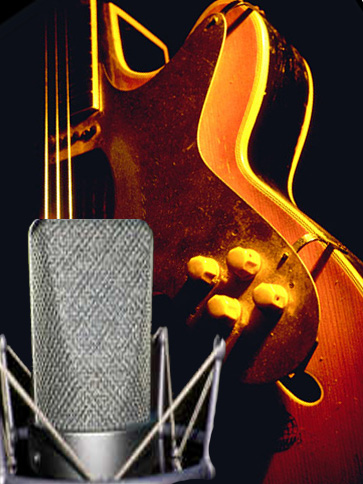 Most independent artists struggle with getting exposure like radio airplay, mass distrrbution, etc. And unless they are signed to a big label, rarely do the masses hear about them at all. Sure, with MySpace and CD Baby and the plethora of digital distributors like iTUNES, the playing field hasn’t capsized, and these musicians do have their small fan base. But will the playing field for Indie artists ever rival that of the signed artist on a major label? Will the Madonnas and Beyonces of the independent world ever reach the fame they so justly deserve?
Most independent artists struggle with getting exposure like radio airplay, mass distrrbution, etc. And unless they are signed to a big label, rarely do the masses hear about them at all. Sure, with MySpace and CD Baby and the plethora of digital distributors like iTUNES, the playing field hasn’t capsized, and these musicians do have their small fan base. But will the playing field for Indie artists ever rival that of the signed artist on a major label? Will the Madonnas and Beyonces of the independent world ever reach the fame they so justly deserve?
Annie De Franco and Prince are the only independents that come to mind. They are the rare few who have superceded the norm. De Franco burst onto the music scene and exemplified nonconformity; Prince used to be with a major label and is now an Indie artist. They both sell a lot of CDs and concert tickets—not the norm for the Indie artist. So, it was very refreshing to speak with a representative (Justin Jouvenal) from a foundation (The Future of Music) that is interested in helping those “underdogs” of music.
How did the Coalition of Independent Music / Future of Music get started?
The future of music was started seven years ago by Jenny Toomey (executive director), and Michael Bracy (policy director). Jenny Toomey ran a record label back in the 90s, called Cold Machine records, which was based in Washington, D.C. They produced many of the Indie rock bands in the area, and she came out of that experience, wanting to tackle issues that affected independent musicians and local artists. She got together with Michael Bracy and Kristin Thomson (deputy executive director). She also ran Cold Machine in 2000, and they decided to form the Future of Music Coalition to focus on music, technology, and policy issues, things catering to the interest of independent musicians. There wasn’t really a voice out there that represented independent musicians on policies and technology issues, so they sort of wanted to step up, and the Future of Music Coalition became that.
What year was this?
This was in 2000, when the group was actually formed.
They wanted to focus on some issues that the independent musician goes through? What are some of those issues?
Radio consolidation is a big issue for independent artists. For many years, independent artists have been virtually banned from the air waves. Unless you are a hugely successful band signed to a major label with a lot of financial backing, it’s really hard to get play on the air waves. So one of the major issues worked on was payola—one of the reasons that you don’t hear a lot of independent artist on the air.
Explain what “payola” is?
Record labels paying radio stations to play their music. We were instrumental… and the FCC investigation of Clear Channel, as well as a number of other big broadcasters over the last several years… This culminated in a settlement earlier this year. Clear Channel and the other broadcasters agreed to play more independent music and put in place some rules that would basically end payola.
Yes, that was a big deal.
Yeah, that was one of our major issues. You know, we also worked on getting to interact with [the radio stations]—that is one of our major campaigns right now. Other than that, it’s musicians and record labels coming together to support net neutrality.
I am not familiar with net neutrality.
What’s great is that the Internet is an open entryway. Anyone could just log on, and if you’re a small band, you could post your songs. If you’re a small record label, you could post your band’s albums. The big telecoms want to change the way the Internet is structured. They set up what we call a “fast lane” on the Internet, and they want to charge website concept providers to have their website downloaded faster. So if you are able to afford these fees, you will have a website that downloads fast. If you’re not able to afford these fees, then there is a fear that they’re going to be so high that independent musicians and independent labels and music download services like CD Baby won’t be able to afford the fees. These record labels and bands will be relegated to the slow lane on the Internet. The major labels and services like iTUNES would join faster speeds. This is a big fight that is going on right now. Supporters of net neutrality are really across the board for groups like moveon.org, and as far to the right as the Christian Coalition. There are a lot of groups that are really worried about that. So far, the campaign launched in May, and we’ve had 511 bands sign up, 143 record labels, and hundreds and hundreds of fans have agreed to be part of the coalition.
As part of the coalition, are there petitions, or are they just speaking out and boycotting?
Well, right now we do have a petition that people can sign. We’re pushing the FCC to enact rules making net neutrality the rule of the Internet. We’re also pushing Congress to enact Legislation. We have a website which is our main organizing tool: futureofmusic.org/rockthenet. This is where bands can sign up. One of the interesting features allows them to sign up for the campaign, and when they play a show, there is a map on the homepage where bands could list their shows. So if you look at it, there’s a picture of the United States and hundreds of push pins [in the map] where supporters of net neutrality are playing shows all across the country. Some of our founding supporters are REM, Pearl Jam, Death Cap for Cutie, Sarah Laughton, The Donnas, and the Kronos Quartet. We have artists that come from a wide spectrum and the music industry supporting our campaign.
I guess the desired effect is to just speak out to the point where it would stop whoever’s in charge. And who specifically is in charge of trying to do away with net neutrality anyway?
It’s the big telecom companies: Verizon. Comcast, etc. They’ve been talking about this for a long time, and they see a big payday there if they act as traffic cops. All they really do right now is deliver the Internet to your house. They are basically in charge of setting up all the pipes through which all the Internet content streams to various people. They realized that they could make a lot of money if they set themselves up as the traffic cops of the Internet. They would control how people access a website. They could charge websites and set up a toll booth that controls how people access websites; and by creating this whole move, they could charge websites for faster download speeds.
What’s so great about the Internet is that it is open, democratic, and anyone could log on, from the smallest blogger to the hugest media empire like FOX, and post their content and have anyone across the Internet access that content equally fast. That is the great principle of the Internet—one of the greatest democratic (creative) institutions going.
I see what some of your immediate goals are, like payola and Clear Channel, that is huge, and net neutrality needs to be preserved; but with indie musicians, do you think that at some point the playing field will ever be level?
That is our hope. That is the work that we engage in everyday. We had some great successes like the payola settlement, which we won. We feel like the music Industry plan towards the biggest players were chipping away at that. If we keep working at it, we could definitely welcome the playing fields for indie musicians, smaller artists, and local artists. I guess it is a question of time and effort before we make these changes. Basically, what I want to do is make the music industry more equitable for indie artists. We want them to be able to afford a middle class living. We want indie artists to pay a mortgage on a house, to be able to get health insurance. It’s putting in place the structures that will allow indie artists to survive … and arrive.
With the coalition do you have special advice or tips for indie artists, on how they could get their music played on the radio stations?
It is still in the early stages, but Clear Channel and several of the other major broadcasters have agreed to play 4200 hours of independent and local music. Right now, the broadcasters are in the process of setting up a process that would allow the artists to submit their music for airplay. Right now that process is just getting off the ground. Check back on a couple months or so.
How does the organization get their funding? Is it mostly through donations?
We get funding mostly through grants from the foundation. We get a small number of donations each year from individuals and musicians.
I am actually an indie musician, so for me, it’s of huge interest. This is great news, and I know you guys have been around for a few years, but I don’t think that the average indie musician really knows about it yet.
Yeah, well that is the struggle we have with our organization—just getting the word out is difficult.
Is there anything else you’d like to add?
One of the other major programs that we have right now is called HINT (Health Insurance Navigation Tool). We conducted a survey in 2001of hundreds of musicians and asked how many of them had health insurance?” Nearly half of the musicians we surveyed didn’t have any health insurance. So we built this program where musicians call in and set up an appointment to talk to musicians who are health insurance specialists and give them advice on how to get health insurance, and what kind of policy would be best for them. We don’t sell any kind of health insurance. It’s strictly funded through grants. We could help artists get to the point where they find health insurance; and it is a really tricky subject, and not many people really understand the ins and outs of it: futureofmusic.org/hint.
For more information about Future of Music, visit their website:www.futureofmusic.com.
Interviewed by Kaylene Peoples

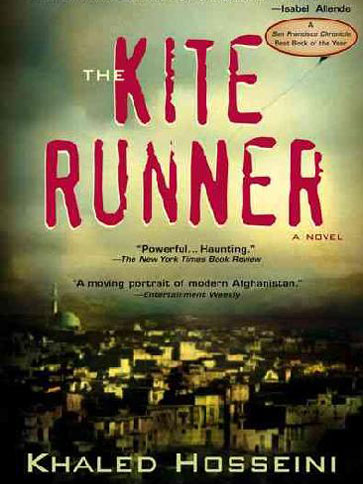
 In spite of having fled his country, the author’s love of his country is clearly evident in both of his books. In this book in particular, his story of two women not only exhibits his love for his country but also his respect for women and their rights. Mariam and Leila, both forced into marriage to a much older man, first meet as rivals in a polygamous marriage but become the closest of friends and each other’s protector from their abusive husband.
In spite of having fled his country, the author’s love of his country is clearly evident in both of his books. In this book in particular, his story of two women not only exhibits his love for his country but also his respect for women and their rights. Mariam and Leila, both forced into marriage to a much older man, first meet as rivals in a polygamous marriage but become the closest of friends and each other’s protector from their abusive husband.